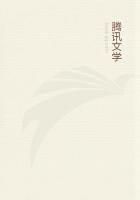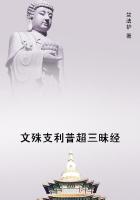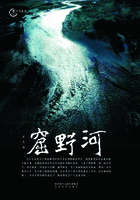How rarely, on the other hand, do our civilised dogs, even when quite young, require to be taught not to attack poultry, sheep, and pigs! No doubt they occasionally do make an attack, and are then beaten; and if not cured, they are destroyed; so that habit, with some degree of selection, has probably concurred in civilising by inheritance our dogs. On the other hand, young chickens have lost, wholly by habit, that fear of the dog and cat which no doubt was originally instinctive in them, in the same way as it is so plainly instinctive in young pheasants, though reared under a hen. It is not that chickens have lost all fear, but fear only of dogs and cats, for if the hen gives the danger-chuckle, they will run (more especially young turkeys) from under her, and conceal themselves in the surrounding grass or thickets; and this is evidently done for the instinctive purpose of allowing, as we see in wild ground-birds, their mother to fly away. But this instinct retained by our chickens has become useless under domestication, for the mother-hen has almost lost by disuse the power of flight.
Hence, we may conclude, that domestic instincts have been acquired and natural instincts have been lost partly by habit, and partly by man selecting and accumulating during successive generations, peculiar mental habits and actions, which at first appeared from what we must in our ignorance call an accident. In some cases compulsory habit alone has sufficed to produce such inherited mental changes; in other cases compulsory habit has done nothing, and all has been the result of selection, pursued both methodically and unconsciously; but in most cases, probably, habit and selection have acted together.
We shall, perhaps, best understand how instincts in a state of nature have become modified by selection, by considering a few cases. I will select only three, out of the several which I shall have to discuss in my future work, namely, the instinct which leads the cuckoo to lay her eggs in other birds' nests; the slave-****** instinct of certain ants; and the comb-****** power of the hive-bee: these two latter instincts have generally, and most justly, been ranked by naturalists as the most wonderful of all known instincts.
It is now commonly admitted that the more immediate and final cause of the cuckoo's instinct is, that she lays her eggs, not daily, but at intervals of two or three days; so that, if she were to make her own nest and sit on her own eggs, those first laid would have to be left for some time unincubated, or there would be eggs and young birds of different ages in the same nest. If this were the case, the process of laying and hatching might be inconveniently long, more especially as she has to migrate at a very early period; and the first hatched young would probably have to be fed by the male alone. But the American cuckoo is in this predicament;for she makes her own nest and has eggs and young successively hatched, all at the same time. It has been asserted that the American cuckoo occasionally lays her eggs in other birds' nests; but I hear on the high authority of Dr. Brewer, that this is a mistake. Nevertheless, I could give several instances of various birds which have been known occasionally to lay their eggs in other birds' nests. Now let us suppose that the ancient progenitor of our European cuckoo had the habits of the American cuckoo; but that occasionally she laid an egg in another bird's nest. If the old bird profited by this occasional habit, or if the young were made more vigorous by advantage having been taken of the mistaken maternal instinct of another bird, than by their own mother's care, encumbered as she can hardly fail to be by having eggs and young of different ages at the same time; then the old birds or the fostered young would gain an advantage. And analogy would lead me to believe, that the young thus reared would be apt to follow by inheritance the occasional and aberrant habit of their mother, and in their turn would be apt to lay their eggs in other birds' nests, and thus be successful in rearing their young. By a continued process of this nature, I believe that the strange instinct of our cuckoo could be, and has been, generated. I may add that, according to Dr. Gray and to some other observers, the European cuckoo has not utterly lost all maternal love and care for her own offspring.
The occasional habit of birds laying their eggs in other birds' nests, either of the same or of a distinct species, is not very uncommon with the Gallinaceae; and this perhaps explains the origin of a singular instinct in the allied group of ostriches. For several hen ostriches, at least in the case of the American species, unite and lay first a few eggs in one nest and then in another; and these are hatched by the males. This instinct may probably be accounted for by the fact of the hens laying a large number of eggs; but, as in the case of the cuckoo, at intervals of two or three days. This instinct, however, of the American ostrich has not as yet been perfected; for a surprising number of eggs lie strewed over the plains, so that in one day's hunting I picked up no less than twenty lost and wasted eggs.
Many bees are parasitic, and always lay their eggs in the nests of bees of other kinds. This case is more remarkable than that of the cuckoo; for these bees have not only their instincts but their structure modified in accordance with their parasitic habits; for they do not possess the pollen-collecting apparatus which would be necessary if they had to store food for their own young. Some species, likewise, of Sphegidae (wasp-like insects) are parasitic on other species; and M. Fabre has lately shown good reason for believing that although the Tachytes nigra generally makes its own burrow and stores it with paralysed prey for its own larvae to feed on, yet that when this insect finds a burrow already made and stored by another sphex, it takes advantage of the prize, and becomes for the occasion parasitic.

